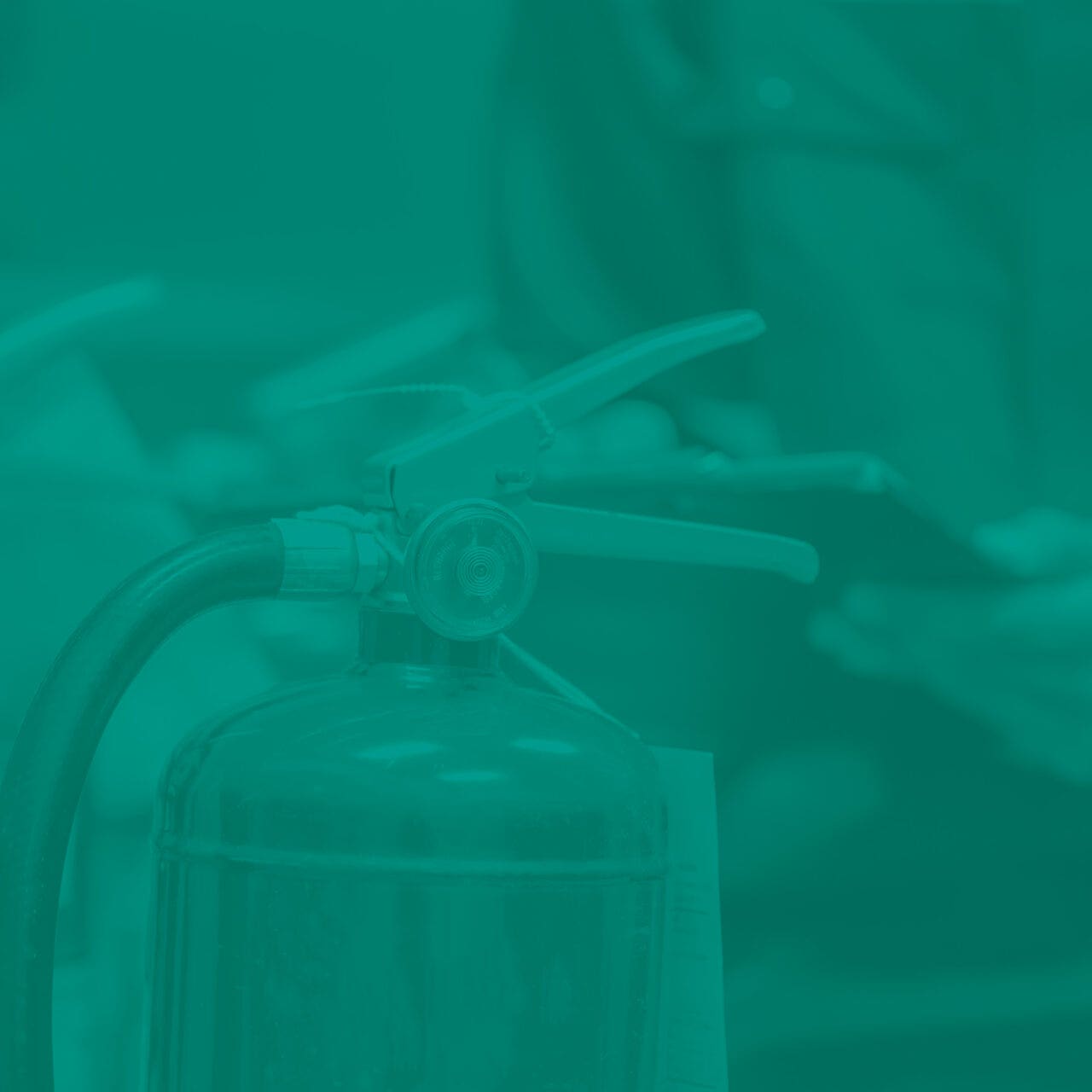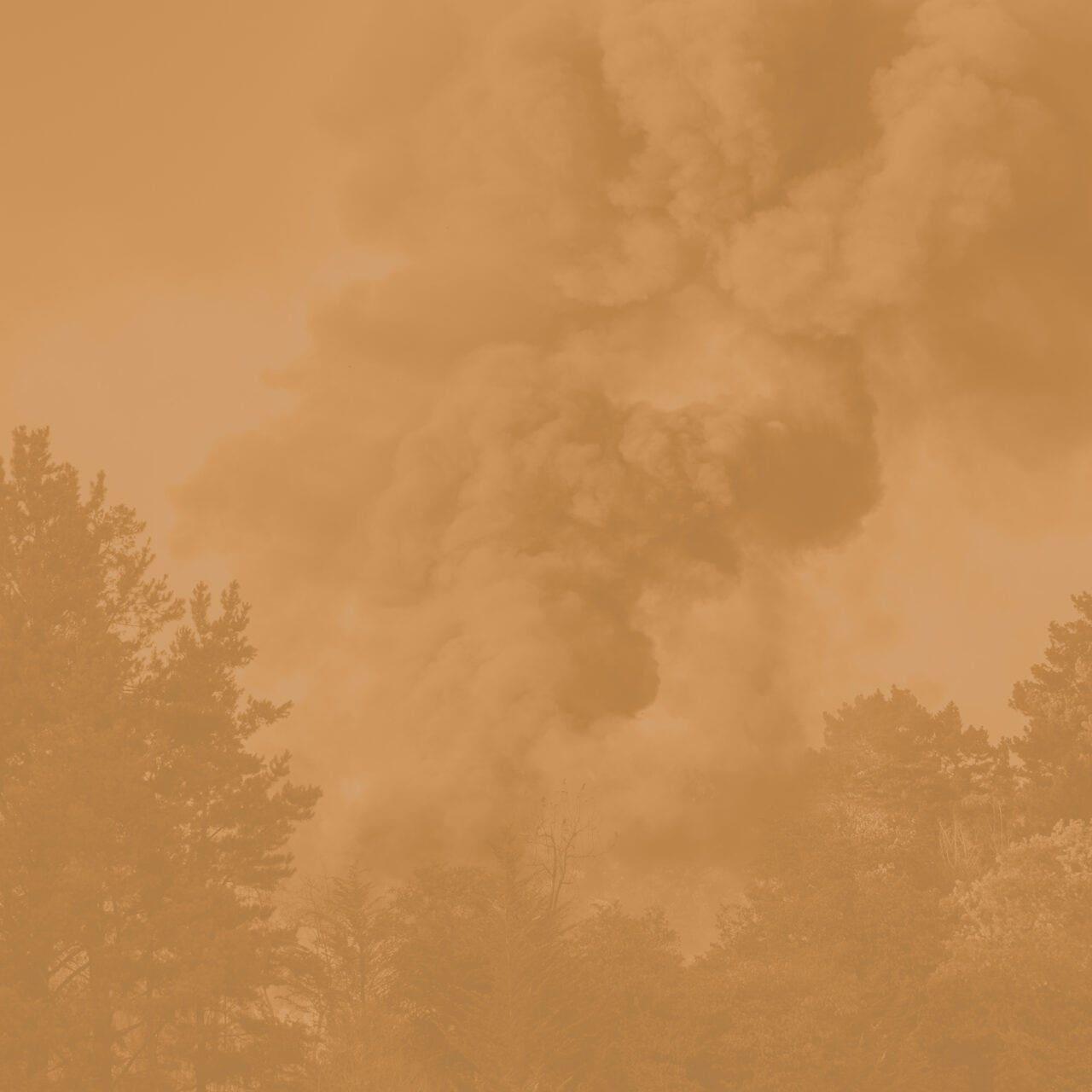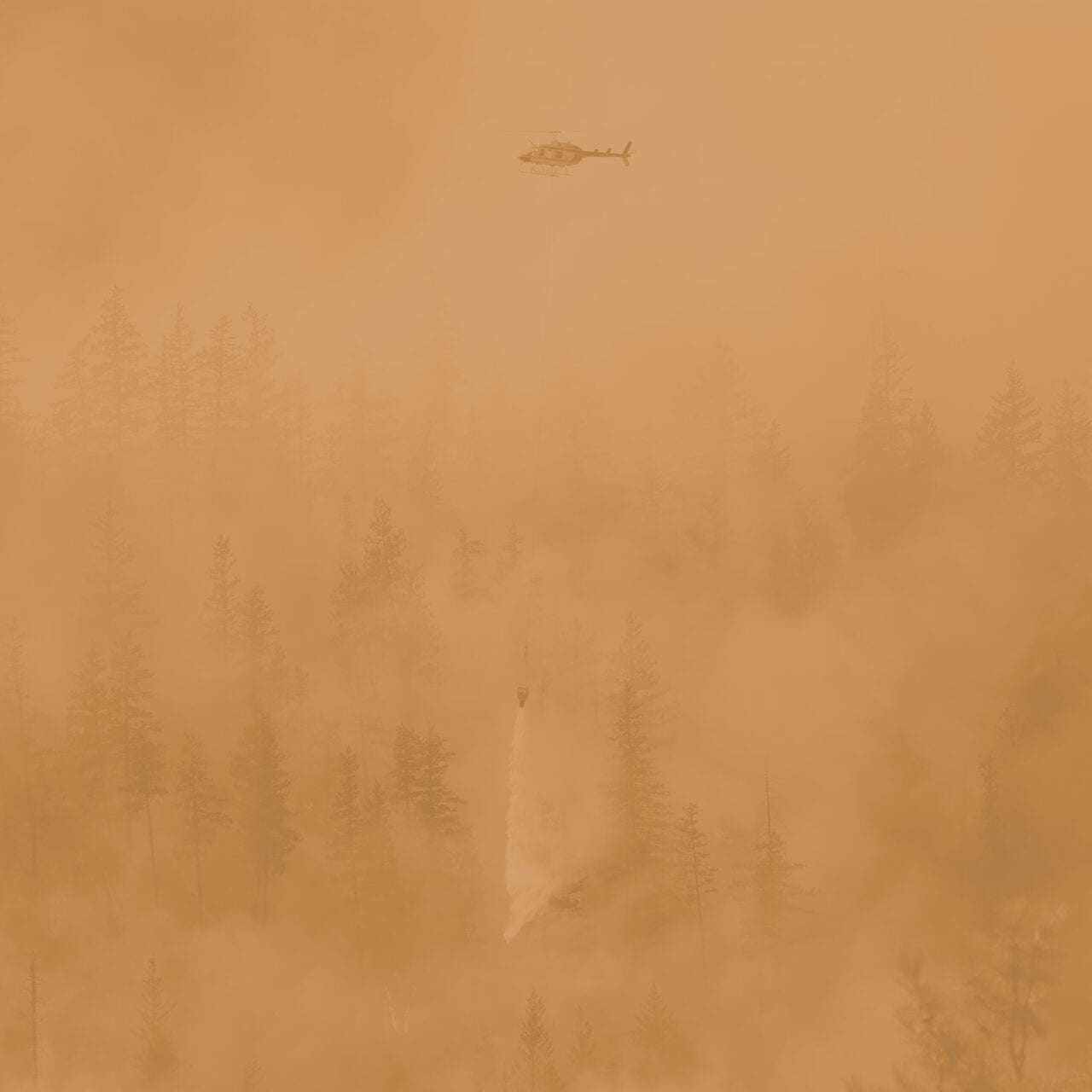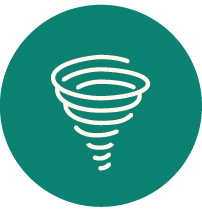
Wildfire preparedness guide: How to minimize fire and smoke damage
Wildfire season in Canada typically occurs between April and October, with peak activity being in July and August.
Acera Insurance does more than just provide coverage to protect against a variety of threats. We also aim to empower our clients with the knowledge and tools they need to effectively navigate and minimize risks. This can include their home, vehicle, business, farm and livelihoods.
Our wildfire preparedness guide outlines initiatives you can take to proactively protect your home or business from wildfire-related damage. One example is what to do to prevent smoke damage.
We also provide an overview of common personal and commercial insurance policies that cover wildfire-related damages and related losses. As well, we let you know how to file a wildfire-related insurance claim.
Contents
- Protect your home from wildfires
- Understanding wildfire insurance for your home
- Protect your business from wildfires
- Understanding wildfire insurance for your business
- Protect your farm from wildfires
- Understanding wildfire insurance for your farm
- Stay safe during a wildfire
- How to file a wildfire insurance claim
- Answers to your wildfire insurance questions
- Additional severe weather resources
Wildfire information for individuals
Protect your home from wildfires
Taking some simple proactive measures can help protect your home from the threat of wildfires.
Here is a two-step approach to proactively create a defensible zone to protect your home from wildfires:
Wildfire defence zone one
Defence zone one falls within the first 10 metres surrounding your home. This area should be free of all flammable materials. This includes dry grass and vegetation, firewood, fuel and combustible plants.
It’s also recommended that any exterior properties, such as decks and sheds, be built of fire-resistant materials. Or, if possible, located more than 10 metres from your home.
Firewood should be stored more than 10 metres away from your home. As well, it should be stored in a fire-resistant box or covered with a fire-resistant tarp.
Opt for patio furniture that is made of non-combustible materials (i.e., metal) or keep it away from your home.
Wildfire defence zone two
Your goal for the remainder of your property is to reduce and properly maintain any vegetation that feeds a wildfire.
Regularly remove dead or unhealthy plants, including roots and stumps, and also rake leaves and twigs. Thin and prune your trees so they are at least three to six metres apart. Regularly mow and water your grass.
In addition to creating a wildfire defence zone around your property, you can protect your property from wildfire damage by:
- Inspecting your chimney at least twice a year and ensuring you’re cleaning the chimney at least once a year. Keep the dampers in good working order.
- Investing in a portable air cleaner to keep indoor air pollution levels low in the event of smoky conditions.
- Regularly clean and clear debris from your roof and gutters as embers can easily set these alight.
- Use fire-resistant building materials if possible (i.e., metal or treated asphalt shingles, brick siding). Wood and vinyl are highly flammable.
- Tempered and thermal windows and doors can help minimize the likelihood of heat from a wildfire growing through the glass. This stops it from igniting the inside of your property.
- Ensure any explosive materials (i.e., propane, gas) is stored and located at least six metres away from your home. Other fuel sources, like firewood, should be covered with fire-resistant covers.
How to secure your home in the event of a wildfire evacuation
- Close all windows and doors.
- Seal vents and openings.
- If possible, bring inside any patio furniture or other outdoor furniture.
- Ensure any fuel sources (i.e., firewood, explosive materials) are located at least six metres away from your home.
- Water down the roof, the home’s exterior and immediate surrounding areas.
- Have your water hoses connected and ready for use.
- Turn off the gas.
- Ensure emergency services can easily access your property if needed. Make sure your property is well marked, access is clear and that any gates are left open if possible.

Understanding wildfire insurance for your home

Standard property insurance policies are homeowner insurance, condo insurance, tenant insurance. These provide coverage for damage caused by wildfires, including damage caused by smoke and water resulting from the fire.
That said, these coverages can vary with each insurer and policy. It’s best to discuss your specific wildfire coverage with your Acera Insurance advisor. When reviewing your policy, we advise that you take into consideration the following:
- Is your coverage limit sufficient to cover the costs of replacing, repairing or rebuilding your home after wildfire damage?
- Is your coverage limit sufficient to cover any loss of fine art, collectibles, jewellery or other valuables in your home? Standard property insurance policies tend to limit the amount they’ll cover for these items. You may want to consider having separate insurance to protect your costly valuables
- Is your home currently undergoing any renovations? If you recently completed renovations, is the new value of your home reflected in your policy?
Your property insurance policy could be homeowner insurance, condo insurance or tenant insurance. These can all provide coverages that can be useful in the event of a wildfire.
- Additional living expenses. These can help cover your increased living costs related to temporary relocation, such as a hotel, storage fees and eating out. For if you’re unable to live in your home following an insured loss as a result of a wildfire. I.e. property damage, mandatory evacuation order. Many insurers will reimburse you the difference between your additional living expenses. Be sure to keep your receipts for extra expenses incurred while displaced from your home and your normal living expenses.
- Food spoilage. This can help replace your fridge or freezer’s contents if a wildfire causes a power outage or technical malfunction.
We recommend that you speak with your Acera Insurance advisor to discuss your coverage limits. Check additional living expenses and food spoilage to ensure your needs are covered in the event of a flood-related loss.
Your home insurance will include the deductible amount you selected when purchasing the policy. This is the amount you have agreed to pay in the event of a covered claim.
For example, imagine your property suffers $5,000 in wildfire damage. If your policy has a $1,000 deductible, your insurer will pay a maximum of $4,000 for the claim.
Depending on your policy and insurer, your additional living expenses and food spoilage coverages may be subject to a deductible.
If you have any questions about the deductible listed in your home insurance policy, please contact your Acera Insurance advisor.
Keeping and maintaining a home inventory list can streamline the claims process if your property sustains fire-related damage. Make sure it’s covered by your policy. We recommend you update your list at least once a year. Here are four tips to help you create and safely store a home inventory list:
- Walk around your house and document your possessions. You can record these details either in a list or by taking photographs. Try to capture a detailed description of the product, a serial number, the purchase date and estimated value.
- Keep and safely store your receipts. If you’re trying to minimize paper clutter, save your receipts digitally.
- You may want to consider creating 360-degree view videos of both the interior and exterior of your property. This can help you keep track of your items and any upgrades to your property.
- Store your home inventory in a safe spot, including keeping one copy offsite. Digital copies should be backed up.
Questions about the wildfire coverage provided in your home, condo or tenant insurance policy? Or have additional questions? Please contact a member of our team.
Wildfire information for businesses
Protect your business from wildfires
Having a dedicated risk management team isn’t obtainable for all businesses. Fortunately, our proactive tips can set you on the right path to create a strategic plan. You can also act diligently to minimize the potential property and operational risks that wildfires present.
Wildfire flames, smoke and firefighting techniques can all cause damage. The following tips can help you minimize this damage in the event a wildfire threatens your business property:
- Install and maintain fire suppression equipment: This should include a fire sprinkler or suppression system. Having fire extinguishers on hand, and employees trained to use them, is also suggested.
- Install fire-resistant materials: Using materials like tile, metal, brick, or stucco on the exterior of your building(s) can help mitigate fire damage. Any wood exterior finishes should be treated with an approved fire-retardant chemical. And you may want to consider installing fire-resistant window treatments or metal fire shutters.
- Prevent soot and smoke from entering: Keep all windows and doors closed if there is wildfire smoke in your vicinity. You may also want to consider using metal mesh on any exterior vents.
- Properly store all combustible materials: Explosive materials should be kept in proper storage containers and at least six metres away from other structures. Other fuel sources, like firewood, should be covered with fire-resistant covers.
- Proactively landscape and maintain surrounding vegetation: Prioritize using non-flammable landscaping such as rocks, stones and sand. Where possible, minimize having trees and greenery in close proximity of your building.
Wildfire evacuations: How to secure your business property
- Bring all property indoors, if possible.
- Close all windows and doors.
- Seal vents and openings.
- Water down the roof, structure and immediate surrounding areas.
- Have water hoses connected and ready for use.
- Turn off the gas.
- Shut down any equipment.
- Remove any essential equipment or materials, if possible.
- Ensure emergency services will be able to access your property if needed.
- If your property is gated, leave the gates open, pointing inwards. If they’re locked, ensure the fire department can break the lock in the case of an emergency.
- Make sure access to your property is clear and passable.
- Make sure your property is clearly signed so that emergency services can easily find it.
Wildfires can directly or indirectly impact your operations. Even if your property isn’t damaged, access to your location could be limited due to evacuation orders. The following steps can help your business maintain a certain level of operation in the event of a wildfire:
- Be ready to have your team work remotely. Make sure they have the necessary training and equipment in advance of a wildfire threat.
- Consider setting up a remote office or facility, if necessary and feasible.
- Cut all non-essential costs and/or apply for temporary loans or grants, if available, to help with cashflow if necessary.
- Speak with your Acera Insurance broker regarding wildfire coverages that may be available to you. These can be through your commercial property and/or business interruption policies.
Minimize the impact of supply chain interruptions due to wildfires
Your business may be indirectly impacted by wildfires due to blazes causing interruptions along the supply chain. Proactively planning for potential supply chain interruptions can help your business minimize any down time. Here are some things you can do:
- Source backup suppliers.
- Diversify your supply base.
- Build up an inventory.
- Identify alternative transportation.
- Be prepared to communicate with clients in the event of a supply chain disruption.

Understanding wildfire insurance for your business

There are two main types of coverage available to protect your business from wildfires:
- Commercial property insurance can help cover the cost of replacing, repairing or rebuilding damaged property and buildings.
- Business interruption insurance can help your company recover lost revenue during a mandatory evacuation order due to a wildfire. Can also be for an insured wildfire damage claim.
If you have any questions regarding wildfire insurance for businesses, please contact an Acera Insurance risk advisor.
Assessing your business inventory once or twice a year can help streamline the claims process in the event of an insured fire loss. Maintain an up-to-date detailed list of your stock, products, contents and/or equipment, including receipts or invoices for these items.
Document with photographs or 360-degree videos both inside and outside your business premises. This can also help you keep track of items and upgrades.
We recommend you keep a copy of this list and photographs off site. You should also provide them to your Acera Insurance advisor.
Wildfire information for farms
Protect your farm from wildfires
Protect your farm before and during a wildfire with these tips.
Follow these proactive steps to protect your farm and livestock before the threat of a wildfire looms:
Prepare your farm buildings and livestock each wildfire season
- Remove or reduce vegetation that can easily ignite from around your livestock and buildings.
- Use fire-resistant materials on your buildings where possible (i.e., replace wood roof materials with metal shingles).
- Create a plan for how you can utilize sprinklers or hoses to protect priority buildings in the event of a wildfire. Also keep a close eye on your water supply during wildfire season. Consider adding an irrigation ditch or pond for additional water resources.
- Ensure any above-ground fuel storage tanks are located at least 40 feet from all buildings.
- Create an evacuation plan for your animals in the event of a wildfire. Consider various options, including sheltering livestock in a barn, moving livestock to an outdoor location on your property. You can also relocate livestock off site or open gates/cutting fences to free the animals to protect themselves.
- Determine which of the action plans listed above you will take to care for your livestock in the event of a wildfire. Ensure you provide food and water for animals that will not be evacuated.
- Put your sprinkler plan into action to protect the buildings you have identified as priorities.

Understanding wildfire insurance for your farm

Farm insurance can be tailored for everything from a small hobby farm to a large commercial operation. What coverage you might need depends on the size and type of your farm. Consider the following insurance coverages to provide protection in the event of a wildfire:
- Livestock
- Machinery, equipment and tools
- Feed, grain, fertilizer and produce
- Properties (home, barns, buildings, structures)
Another important coverage for commercial farmers to consider is business interruption insurance. This can help cover essential costs if your farm operations are impacted by a wildfire.
If you have any questions regarding wildfire insurance for farms, please contact an Acera Insurance risk advisor.
Stay safe during a wildfire
- Stay informed on the wildfire risk by listening to updates from authorities.
- Be ready to evacuate. Have your emergency kit ready to go and ensure your vehicle has fuel.
- If you spot a wildfire, report it and then proceed quickly to a safe location. Never attempt to fight a wildfire yourself.
- Wildfire smoke can be harmful, especially for children, the elderly and those with heart and lung-related health issues. Monitor the air quality and follow the recommended precautions. To help keep smoke out of your home, close all windows and doors. Also cover vents and other openings with duct tape.
- If time permits in the event of an evacuation alert, prepare your property. Move patio furniture, cushions and door mats indoors, as well as removing flammable curtains and window treatments.
- Connect garden hoses and fill large containers with water, such as pools, hot tubs and garbage cans. This can assist firefighters and help slow advancing flames.
- Ensure your house number is visible. This will help firefighters locate your home quickly.
- Disconnect automatic garage door openers so doors can be opened by hand if you lose power.
- In the event of an evacuation order, leave immediately via the routes specified by authorities. Close all doors and windows and turn on both interior and exterior lights. This ensures your home is visible to firefighters in heavy smoke.
How to file a wildfire insurance claim
Follow these steps if you have experienced property damage or other financial losses related to a wildfire:
- Contact us at your earliest convenience — we’re here to help through the entire claims process.
- Document the damage once it is safe to do so; take photographs and detailed notes.
- Keep all receipts related to cleanup, repairs or replacements, and additional living expenses.
You can find answers to common claims questions here.
Answers to your wildfire insurance questions
Wildfire-related claims are among the costliest in Canada, causing millions of dollars in insured losses each year, if not more. They are higher in Western Canada.
For example, according to the Insurance Bureau of Canada, notable wildfires across the country accounted for $780 million in insured losses in 2023 alone. The all-time costliest severe weather insurable loss on record is the Fort McMurray, AB. Wildfire in 2016 that cost nearly $6 billion alone.
No. In most cases, wildfires are covered by standard property insurance policies (i.e., homeowner insurance, commercial property insurance).
No. You cannot update or change your home, business or farm insurance when under threat of a wildfire. This also goes for once an evacuation alert has been issued.
This will depend on the coverage limit you have selected for your residential insurance, commercial insurance or farm insurance policy.
The limit you selected is also a factor for co-insurance and if you’re deemed underinsured, you may face a co-insurance penalty. You can learn more about co-insurance in our 2024 market forecast.
Furthermore, the amount you’ll receive for covered damage will also depend on if you have opted to be reimbursed for losses based on replacement cost or actual cash value. The equation insurers use for actual cash value includes a depreciation calculation, whereas replacement cost does not factor in depreciation. Some policies also offer a clause called guaranteed replacement cost. This will cover the cost to repair or rebuild on the same site with similar materials. It covers you, even if the costs exceed your policy limits.
If you have any questions about the wildfire coverage your policy offers, please contact an Acera Insurance advisor.
Additional severe weather resources

Flood preparedness guide
Learn how to insure your home and business against flooding and how to minimize flood damage.

Hail preparedness guide
Learn how to insure your home and business against hail and how to minimize damage caused by these storms.

Earthquake preparedness guide
Earthquakes are unpredictable and can cause significant damage to homes, vehicles, businesses and farms in a short period of time. While some parts of Canada are more prone to earthquakes, a tremor can strike anywhere. These tips can help you be prepared.

Tornado preparedness guide
Tornadoes can form very quickly. This results in extreme winds and thrown debris that can cause extensive damage to homes, vehicles, businesses and farms in a short period of time. While parts of Canada are more prone to tornadoes, a twister can touch down anywhere. These tips can help you be prepared.

Hurricane preparedness guide
Learn how to insure your home, business or farm against hurricanes and how to minimize damage caused by these storms.
